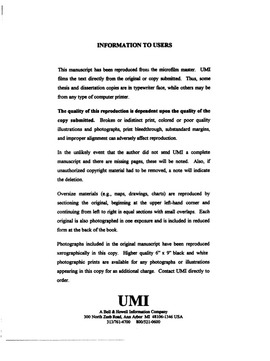| dc.contributor.advisor | Pace, Terry M., | en_US |
| dc.contributor.author | Keller, James Riley. | en_US |
| dc.date.accessioned | 2013-08-16T12:29:53Z | |
| dc.date.available | 2013-08-16T12:29:53Z | |
| dc.date.issued | 1997 | en_US |
| dc.identifier.uri | https://hdl.handle.net/11244/5557 | |
| dc.description.abstract | Fifty-three male myocardial infarction and unstable angina patients hospitalized in a V.A. Medical Center were assessed for depression, marital satisfaction, and several other psychosocial risk factors while in the hospital. Thirty patients were again assessed between five and eight months post-discharge. Results indicated that myocardial infarction and unstable angina patients did not differ statistically on any of the psychosocial or recovery measures, and, therefore, appear comparable in terms of psychosocial functioning. Among the baseline sample (N = 53), the incidence of major depression was nearly six times greater than the general adult male population. Findings indicated that higher degrees of depression at baseline and at follow-up were associated with poorer recovery. Social support at baseline was also found to be significantly correlated with the recovery measure. Preliminary analysis suggested that the MIRFI Marital Satisfaction and Depression subscales related significantly to their parent measures. Proposed explanations for the findings, as well as implications for clinical practice and future research are discussed. | en_US |
| dc.description.abstract | The current study sought to build upon existing literature by examining the relationships among depression, marital satisfaction, and cardiac recovery from the time of hospitalization to 5-8 months post-discharge for myocardial infarction and unstable angina. To better illustrate the theoretical linkages between depression, marital satisfaction and cardiac functioning, a causal pathway model was created as a framework to aid research and clinical practice. A self-report instrument (Myocardial Infarction Risk Factor Inventory: MIRFI) was also devised to screen for five of the more recognized psychosocial risk factors linked to heart disease and impeded recovery (depression, marital satisfaction, Type A, hostility, and social support). To assess recovery, the Myocardial Infarction Recovery Index-Short Form was also created by the author as an adaptation from a measure first proposed by Utz and Beach (1988). Unlike previous research, both myocardial infarction and unstable angina patients were studied, and special attention was paid to the interaction of depression and marital functioning as it relates to cardiac recovery. | en_US |
| dc.format.extent | vii, 197 leaves : | en_US |
| dc.subject | Psychology, Psychobiology. | en_US |
| dc.subject | Depression, Mental. | en_US |
| dc.subject | Psychology, Physiological. | en_US |
| dc.subject | Psychology, Behavioral. | en_US |
| dc.subject | Marriage. | en_US |
| dc.subject | Heart Diseases Patients Rehabilitation. | en_US |
| dc.subject | Coronary heart disease Patients Rehabilitation. | en_US |
| dc.title | The relationships among depression, marital satisfaction, and cardiac recovery in the days and months posthospitalization for myocardial infarction and unstable angina. | en_US |
| dc.type | Thesis | en_US |
| dc.thesis.degree | Ph.D. | en_US |
| dc.thesis.degreeDiscipline | Department of Psychology | en_US |
| dc.note | Adviser: Terry M. Pace. | en_US |
| dc.note | Source: Dissertation Abstracts International, Volume: 58-09, Section: B, page: 5104. | en_US |
| ou.identifier | (UMI)AAI9810314 | en_US |
| ou.group | College of Arts and Sciences::Department of Psychology | |
